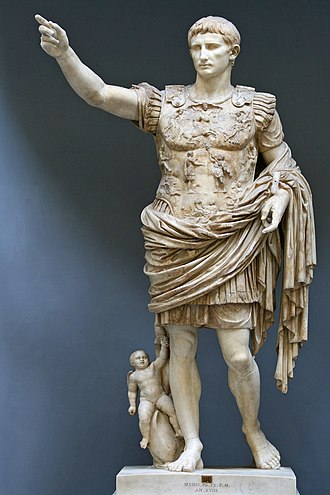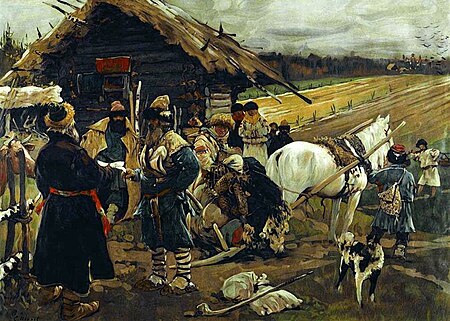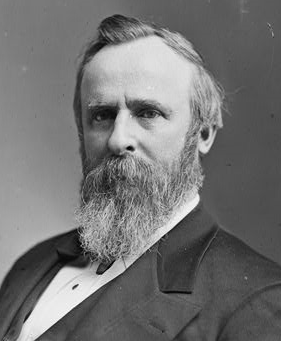 One thing I love about reading those “It happened today” lists from which these commentaries are derived is the breathless announcement of stuff you absolutely never heard of. Some of it is these weird no-hope ventures that litter the historical landscape and remind us how amazing it is that anything ever worked. Others are revealing in their obscurity.
One thing I love about reading those “It happened today” lists from which these commentaries are derived is the breathless announcement of stuff you absolutely never heard of. Some of it is these weird no-hope ventures that litter the historical landscape and remind us how amazing it is that anything ever worked. Others are revealing in their obscurity.
For instance on March 8 “Ferdowsi completes his epic poem Shahnameh.” Does he now? Reading this sort of thing is like reading syllabus descriptions of advanced mathematical courses where even if you knew what they were saying you wouldn’t. For instance this selection from the current U of O offerings: “Manifolds, differentiable structures, tangent space, vector fields, differential forms, tensor fields, Riemannian metric.” A spare, elegant, concise exercise in utter incomprehensibility. But back to Ferdowsi.
Quick. Without Googling (if you already cheated and did, no raising your hand), in what century did he, she or it complete whatever that thing was? OK, in what half millennium?
Correct. The first half of the 2nd millennium A.D. In 1010, to be precise. And many bonus points if you know, without being of Iranian extraction, that “Ferdowsi” is in fact Abu ʾl-Qasim Ferdowsi Tusi and Shahnameh is the world’s longest single-author epic poem and of great importance to this day to the people of “Greater Iran,” that is, Iran itself as well as regions influenced by Persian culture from Azerbaijan to Dagestan, and also to Zoroastrians who, I am amazed to report, still exist though in very small numbers, perhaps 200,000 worldwide (it is hard to be sure because many are in Iran which doesn’t count them properly).
I am not making fun of Ferdowsi, Shahnameh or Greater Iran here. Quite the reverse. I am pointing out that if you live in the West, and especially if you are of reasonably long-established Western stock, there is a great deal that you do not know about the world. For instance, what is the most commonly drunk alcoholic beverage globally?
No, not beer. Not wine. Not scotch. It’s baijiu, a fiery white liquor that is frequently rotgut although it is aiming to move upscale. Now admittedly it has a head start because it is popular in the world’s most populous nation where it originated. But the fact remains that a great many Chinese have heard of beer, wine and Scotch, as they have heard of John Wayne, Elvis Presley and Hercules. But you haven’t heard of any leading Chinese actors unless like Bruce Lee they went international, which is to say Western. As for Hercules (and don’t Google this or you’ll get the truly appalling martial arts movie Chinese Hercules, which I actually have seen but let’s not dwell on it), Mencius comments at one point that “whoever can lift the same weight as Wu Huo is himself a Wu Huo.” Which only makes sense if you know it’s a byword for a strong man. But you don’t.
OK, you might. In every class I have one smart aleck who has had baijiu without being of Chinese heritage. And maybe you’re that person. But by and large the West looms so large that everyone everywhere has heard even of our bad entertainment, while we know little even of their classics. For that matter, how many Chinese know the name of Barack Obama, versus the number of non-Chinese who can name their president? (It’s Xi Jinping, pronounced ɕǐ tɕînpʰǐŋ according to Wikipedia in case you suddenly have to say it right, and he’s also General Secretary of the Communist Party of China, Chairman of the Central Military Commission and a thoroughly sinister character.)
I’m not apologizing. I’m proud of the West, and urge everyone to adopt its principles of liberty under law and individual rights. I’m just asking for a little sensitivity to those who think the Shahnameh should be up there with the Odyssey and get “Huh?” back, or “What’s that, a Riemannian metric?”
 On this date, March 7, in 161 A.D. Antoninus Pius died. I always wondered if the title meant he was pious (his full name was Titus Fulvus Aelius Hadrianus Antoninus Augustus Pius but the last bits were added after he became emperor). It turns out no one’s quite sure. It may have been because he insisted the Senate deify his adopted father Hadrian which wasn’t exactly piety as we understand the word. But he was a good emperor.
On this date, March 7, in 161 A.D. Antoninus Pius died. I always wondered if the title meant he was pious (his full name was Titus Fulvus Aelius Hadrianus Antoninus Augustus Pius but the last bits were added after he became emperor). It turns out no one’s quite sure. It may have been because he insisted the Senate deify his adopted father Hadrian which wasn’t exactly piety as we understand the word. But he was a good emperor.

 The philosopher Heraclitus called war “the father of all” some 25 centuries ago. It is an unpleasant thought that armed conflict, widely regarded by humans as among humans’ most loathsome habits, could also be among our most important and, worse, effective. Over the long run ideas matter more, I am convinced. And yet it is not hard to point to specific battles and say if that had gone the other way, and it might have, the world would be dramatically different.
The philosopher Heraclitus called war “the father of all” some 25 centuries ago. It is an unpleasant thought that armed conflict, widely regarded by humans as among humans’ most loathsome habits, could also be among our most important and, worse, effective. Over the long run ideas matter more, I am convinced. And yet it is not hard to point to specific battles and say if that had gone the other way, and it might have, the world would be dramatically different.

